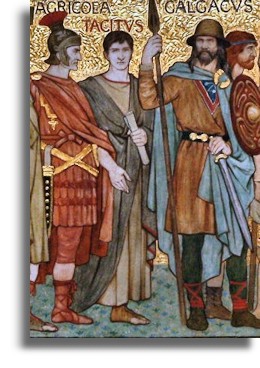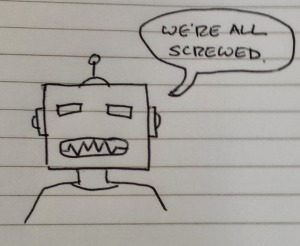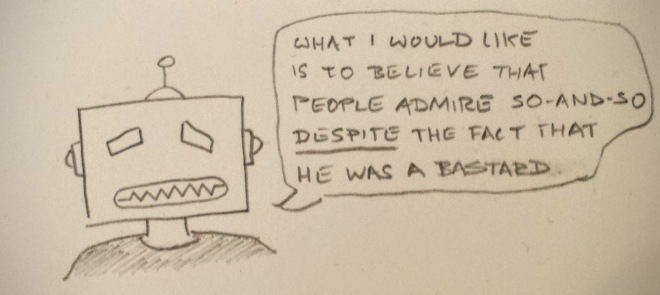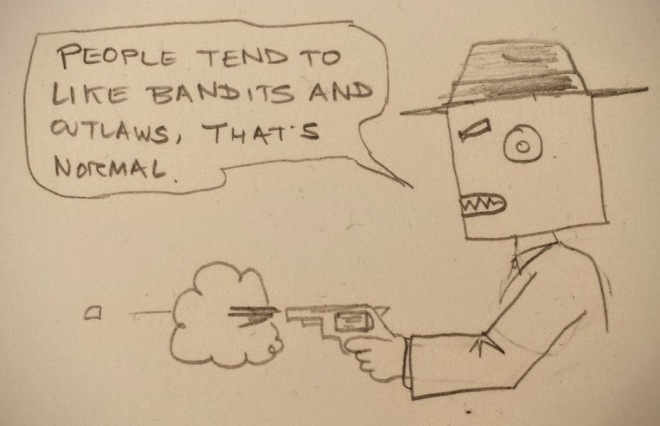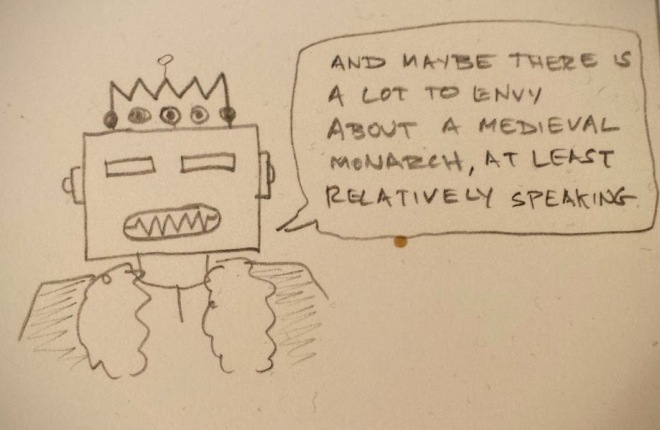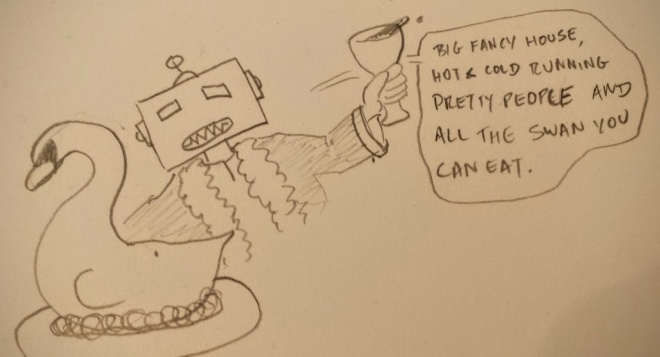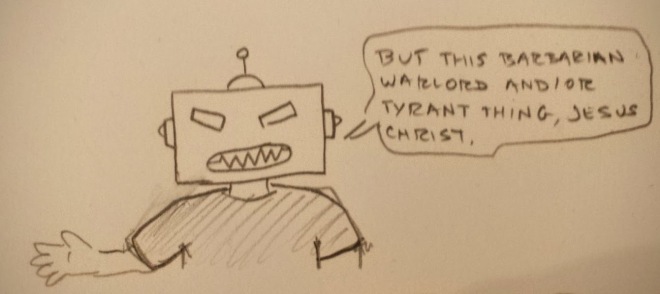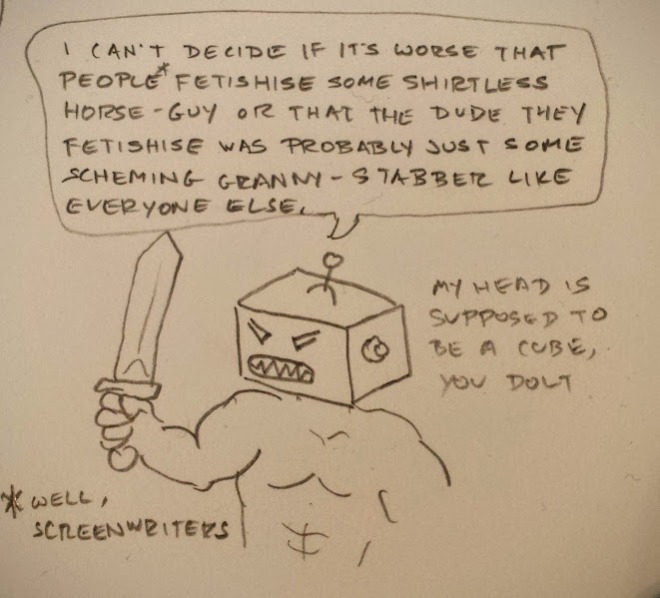I have written on this blog before about sensationalism and the kind of mixed reaction I have to it. I’ve had several conversations recently, though, that had me thinking about it again. As always, I’m just thinking out loud here — quite unsure how I feel.
So if we’re going to talk about sensationalism, let’s talk about berserkers.

So, if you’re like most people, when you think of the Viking period, you think of berserkers — fearsome warriors clad in bear or wolf skins who would go into an unstoppable battle frenzy! Everyone likes a good berserker, and they turn up in everything from the TV show to games about the period. You can see a few such characters I’ve painted up for wargames above, so don’t imagine that I’m immune to the fascination.
The berserker image is potent, and it’s potent because it’s simple — giving up everything and surrendering yourself to this overwhelming fury. It’s the simplicity that gives it its intensity, and the intensity that gives it its popularity. But like all very simple images, it’s an oversimplification.
I recently watched a video about berserkers by Nikolas “lindybeige” Lloyd, which I thought was very good, although in my view it comes to too sweeping a conclusion: “it wasn’t like this, it was like that,” instead of it “it wasn’t like this, we’re not sure what the deal was,” which I think is where the evidence points.
If you’re interested in reading more, I would check out Berserkjablogg, which I think (I should have written it down) is run by lindybeige’s source. In particular, the cited passages are in this post. Based on the literary evidence — and that’s a whole extra kettle of fish right there, of course, but since the literary evidence is largely where our berserker image comes from, it might as well be what we use to criticise it — it seems like we’re seeing much more complicated, some kind of understood social identity of being a berserk. This identity had something to do with animal qualities, but it doesn’t mean that some kind of unreasoning frenzy was a psychological reality for the Vikings particularly.
Now, to me, that’s actually much more interesting. But just like everyone else, it’s the sensational, romantic version of the thing that attracted me in the first place. And although I don’t hate to lose it — I can keep the fantasy version in my head with the real one with no problem — I do feel like on the one hand I want to deplore the way movies and games simplify everything while on the other hand I want to … revel in it?




![Alfred+Duggan[1]](https://gonzohistory.files.wordpress.com/2015/07/alfredduggan1.jpg?w=660)


